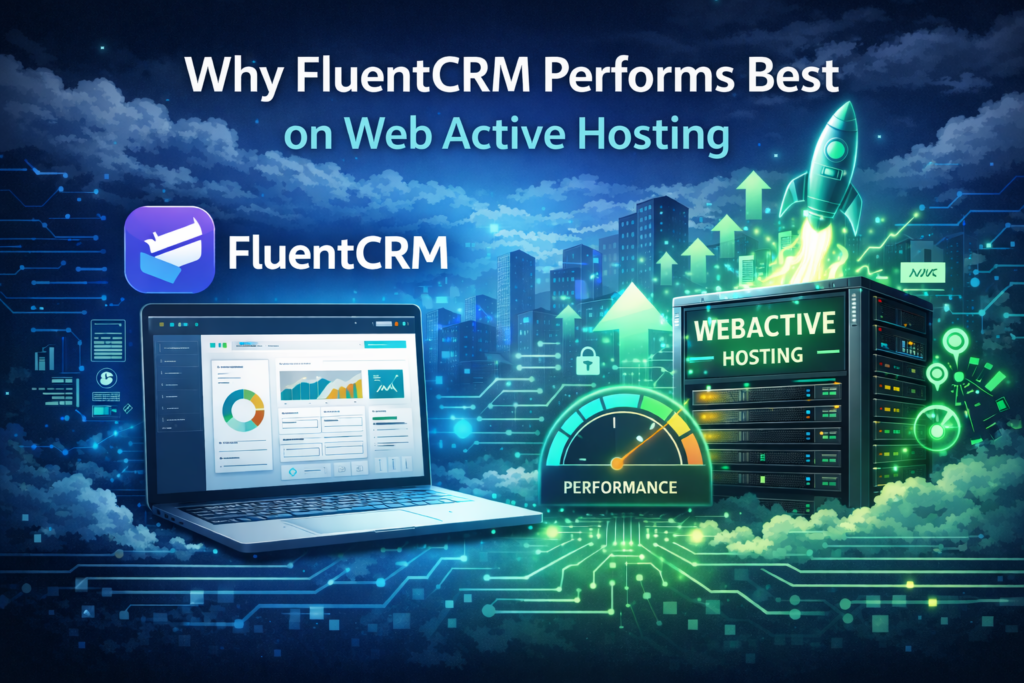Understanding FluentCRM’s Server Requirements
FluentCRM is a self-hosted email marketing automation plugin designed specifically for WordPress. Because of its robust functionality, including email sequencing, automation, and user tracking, it demands a hosting environment that can support consistent and high-volume background processing. Unlike simpler plugins, FluentCRM relies heavily on PHP workers, adequate memory, and process scheduling to execute its automation tasks efficiently.
One of the key technical requirements for FluentCRM is the ability to handle cron jobs reliably. WordPress uses WP-Cron to schedule tasks, but on shared or underpowered hosting, these tasks can be delayed or fail to run entirely. This can affect campaign timing, list management, and data syncing with WooCommerce or other plugins. High Performance hosting ensures that cron jobs execute as expected without being interrupted by other site processes.
Additionally, FluentCRM stores and manages large amounts of data, especially when dealing with thousands of contacts, custom fields, and interaction histories. This places demands on the database layer of the hosting stack. Specialized hosting providers often optimize MySQL configurations, provide faster disk I/O, and isolate resources, ensuring FluentCRM’s backend operates without latency or bottlenecks.
The Impact of Hosting on Email Performance
Email performance is a critical metric for any CRM, and hosting plays a pivotal role in determining the speed and reliability of email delivery. FluentCRM processes outgoing emails directly from the WordPress server, meaning that sending large volumes of emails can quickly consume server resources. Without High Performance hosting, users may encounter issues like rate-limiting, timeouts, or IP blacklisting.
Latency and throughput are particularly affected when FluentCRM is hosted on standard shared servers. These environments often have limited resources, throttled email services, or shared IPs that reduce deliverability. High Performance hosting solutions, especially those that support dedicated email sending services or integrations with SMTP providers, ensure that FluentCRM can maintain a high email throughput without performance degradation.
Moreover, hosts often implement optimized server-side caching, queue management, and resource isolation, which allow FluentCRM to handle batch email campaigns, transactional emails, and behavioral automations simultaneously. This leads to improved open and click rates, minimized server strain, and a better overall user experience.
Key Hosting Features for Optimal CRM Function
Several key hosting features are essential for FluentCRM to perform optimally. First and foremost is adequate PHP worker availability. PHP workers are responsible for executing simultaneous processes, and FluentCRM’s reliance on automation, email sequences, and real-time tracking means that multiple PHP processes may run concurrently. High Performance hosting provides more PHP workers and allows scaling based on workload.
Another critical feature is support for persistent object caching using Redis or Memcached. These caching layers significantly improve FluentCRM’s performance by reducing database queries and speeding up repetitive operations. When combined with optimized database performance and sufficient server memory, these caching mechanisms can drastically reduce load times and increase overall reliability.
Security is also a vital consideration. FluentCRM stores sensitive contact data, and High Performance hosting providers often include features like server-level firewalls, malware scanning, and automatic backups. These enhancements protect user data and ensure compliance with data protection regulations. With built-in SSL, secure SMTP settings, and staging environments, specialized hosting provides a safer and more controlled ecosystem for CRM operations.
